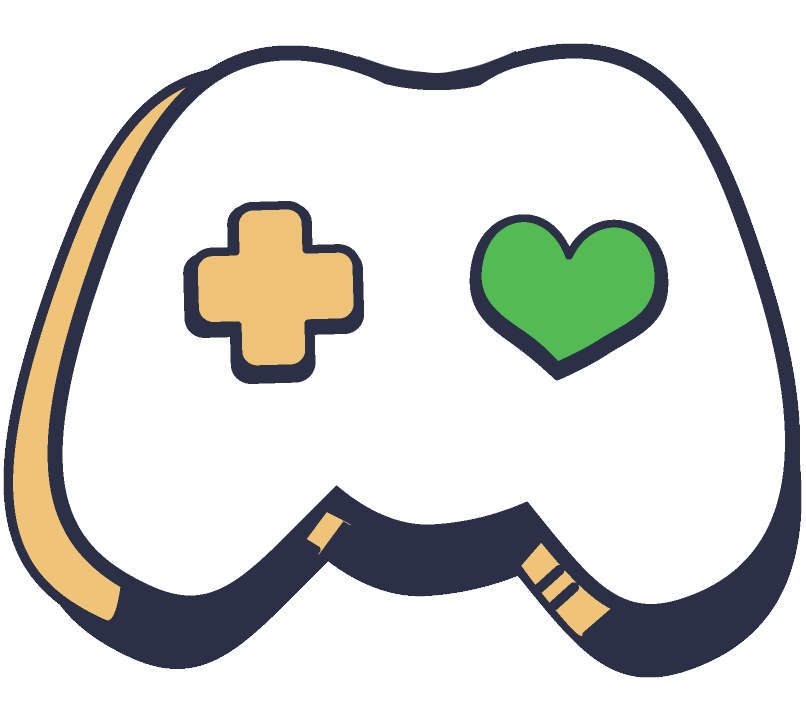What to expect
Take Care of Yourself
While the aim is to create a game prototype in 48 hours, we prioritize the well-being of all participants. We encourage everyone to take regular breaks, eat, get enough sleep, and stay active and hydrated. It is important to break down your project goal into smaller achievable steps. Remember, the journey, collaboration with your teammates, and learning experiences are more important than having a fully polished version of your game by the end. A schedule for the event and additional information will be sent to you via email shortly before the event, allowing you to plan accordingly.
Game Pitch
Start with your initial rough idea. Anyone who wants to pitch an idea for a game can do so. The format is quite open, but it's important that you can effectively communicate your idea so people can decide if they want to join you and bring it to life. Visual mood boards, mind maps, or bullet points can be helpful. The idea should align with the game jam theme, which will be revealed at the beginning of the event.
Team
No matter how much experience you have, everyone can contribute to the game. Ideally, your team should consist of individuals who can design, program, and create art. However, thanks to the availability of free resources, you can be flexible in what you create from scratch and choose your team based on the specific needs of your project. During the game jam, there will be a team-finding phase where attendees can indicate the skills they require, and individuals can decide which projects to join. The game jam discord will be opened one week before the event, allowing participants to get to know each other in advance.
During the Game Jam
Once your team has formed around an idea, gather together and brainstorm. Determine which tools to use and document the core game design. When starting your game, aim to begin with a small and simple project. Create a rough plan and divide responsibilities among team members. Agree on methods of communication and sharing updates while working towards your goal. If possible, ask other attendees to test and provide feedback on your content during the process. Don't forget to share your progress with everyone on Discord, so we can support and encourage you!
Joining the game jam on location? Here are a few additional tips.
Bring all the necessary equipment, such as your laptop/PC, chargers, and any specific tools or software you may need for your game development. It is up to you whether you want to stay on location overnight. If you choose to do so, remember to bring a sleeping bag and an inflatable mattress. We encourage everyone to get enough sleep and avoid pulling all-nighters. Catering will be provided throughout the day.
Support
There will be a dedicated support channel on the game jam discord where you can ask for help whenever you feel stuck or have any questions. The game jam organization team will also be able to support and give advice throughout the event. Also, take a look at the FAQ, and do not hesitate to contact us via mail.
Disclaimer
All game jam projects can be uploaded to our itch.io page. If you intend to continue and market the project after the jam, you can absolutely do that. In that case, you need to pay attention to licenses on your own accord. We will also stream the final projects on twitch.
Resources
Luckily, there is an abundance of free tools and resources to use nowadays. Ciro Continisio has created this document listing the majority of them all in one place. If this list feels too overwhelming here are a few common ones to pick from.
Game Engines
This allows you to combine all of your team’s work into one game. For some engines, you need to know a programming language but there are also engines that allow you to use visual scripting or blueprints.
Unity ( Asset Store) C#
Unreal Engine (Marketplace) C++
Godot (supports multiple programming languages)
Assets
To bring your game to life with content you can find free assets to use also specifically catered to game development.
Kenny (broad variety of assets)
Open Game Art (most models in Blender format)
Unity Asset Store (compatible with other tech too)
Creative Commons (broad variety of assets)
Archive (broad variety of assets)
The Base Mesh (600+ meshes)
Tools
To create the content for your game you will need to use tools that allow you to model, rig, animate, render, and create VFX, 2D, or 3D art.
GIMP (Photoshop-like)
Krita (digital painting)
Planning
Game development highly depends on coolaboration. To coordinate work with your team mates here are some tools you can use.
Codecks (gamedev specific project management, bucket list, time metrics, Discord integration)
Trello (project management, bucket list)
HackNPlan (project management, bucket list, time metrics, specific for gamedev)
Miro (great for live collaboration, brainstorming, mind mapping, mood boards)
Accessibility
We advise getting familiar with the topic. If all of us use it when creating games from the beginning we can ensure it becomes common practice.
Further Reading
If you want to do some further reading on game jams and how to best prepare here are some links to get you started.
The Ultimate Guide to Game Jams for Beginners

